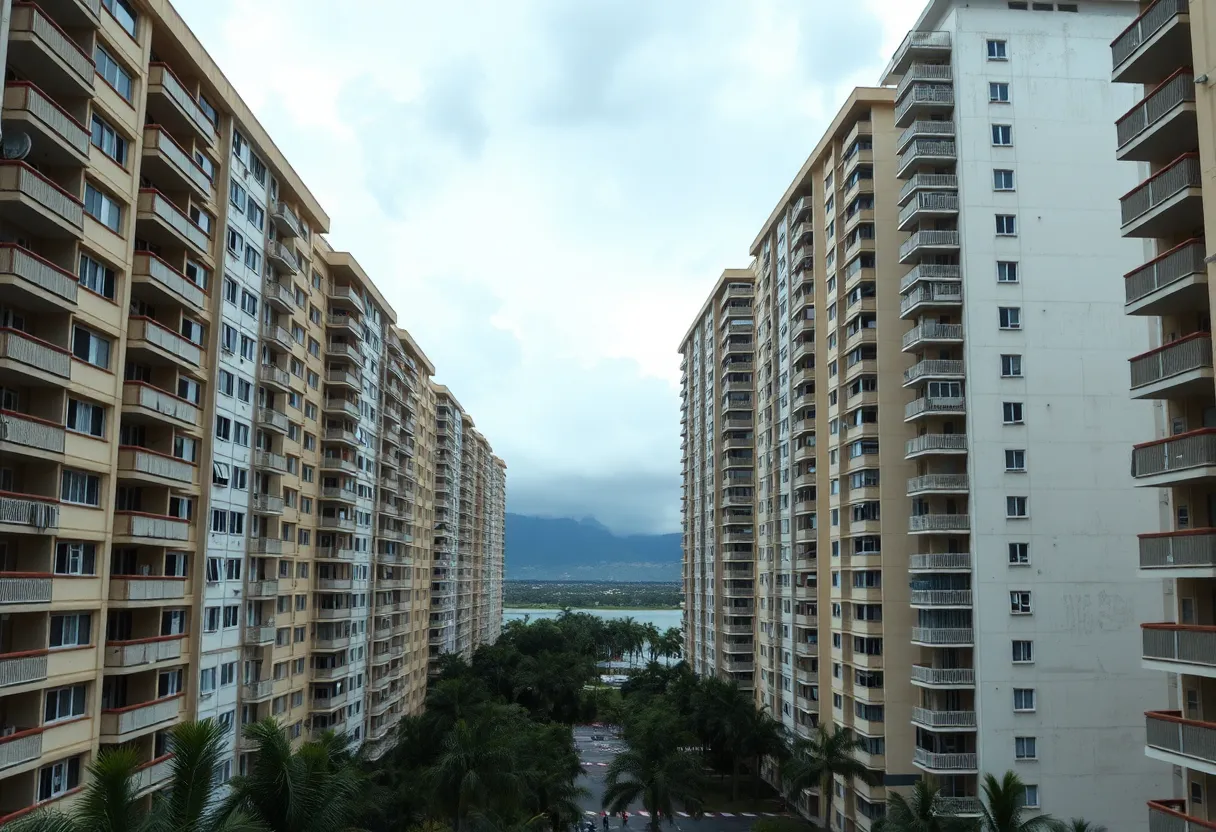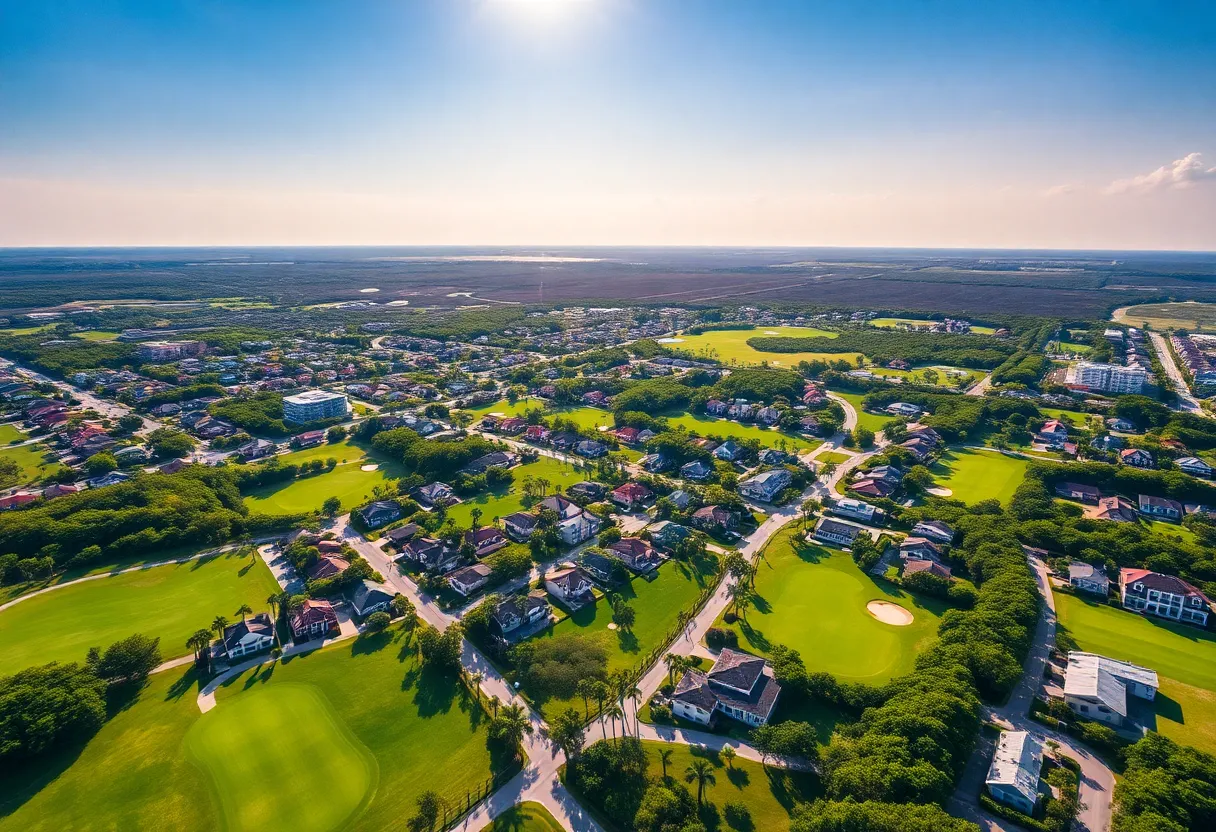News Summary
Florida condo owners are facing significant challenges due to escalating costs and new regulations aimed at building safety. Rising maintenance fees, special assessments, and skyrocketing insurance premiums are forcing many to sell their properties. Market inventory has surged, particularly affecting older units that are becoming increasingly difficult to sell. The financial strain is prompting some residents to relocate to states with lower living costs, raising concerns about the future of the local market and economy.
Florida condo owners are increasingly facing a daunting real estate landscape as rising costs and regulatory changes drive many to sell their properties amid deteriorating market conditions. The situation has intensified following the passage of new state laws aimed at ensuring safety in older buildings, leaving owners grappling with mounting financial pressures.
Central to this crisis are increased maintenance fees, special assessments, and soaring insurance rates necessitated by updated safety inspection requirements. Many owners of older condo units find it increasingly difficult to sell, with significant drops in property values. For instance, one Brickell Key owner reduced the asking price of her unit from $390,000 to $300,000 due to ballooning costs, including a $1,300 monthly maintenance fee compounded by a 10-year payment plan for a $45,000 special assessment.
In the wake of the 2021 Champlain Towers South building collapse, Florida enacted legislation mandating safety inspections and reserve studies for older condominium buildings. This law particularly affects buildings that are 30 years old or older or those that are 25 years old within five miles of the coast. While some of the deadlines for compliance have been extended to the end of 2024, owners are already feeling the financial strain as maintenance fees have surged by over 70% since 2016. For condos with three stories or more, fees have risen by 42% between 2022 and 2025, placing additional burdens on owners.
The implications of these developments have painted a stark picture, described by some analysts as “a tale of two markets.” Newer condos may still attract buyers, whereas older buildings face steeper challenges and greater quantities of inventory, reflecting a significant influx. Recent data indicates a 36% increase in condo inventory year-over-year in June, resulting in approximately 14 months of available inventory—the norm for a balanced market being between six to nine months.
Financial strains are exacerbated by reports indicating a 164% surge in average insurance premiums for condo associations within Miami-Dade County since early 2021. These increased expenses contribute significantly to the already high ownership costs that many residents—especially the 22% of the state’s population aged 65 and older—cannot afford. Many elderly owners are now considering selling their condos as their fixed incomes struggle to keep pace with rising costs.
A legislation passed earlier this year also aims to ease these financial burdens by allowing condo associations to access lines of credit for reserves and suspend mandatory reserve contributions for up to two years while repairs are underway. Nonetheless, the immediate impact of high maintenance fees and assessments still overshadows these new measures. A recent example of this is an elderly owner who ended up selling her condo for $7,000 less than the purchase price due to unforeseen assessments and costly maintenance.
Market predictions suggest that the average sale price of condos could decrease by as much as 40% from the highs seen during the COVID-19 pandemic. This decline presents a favorable opportunity for buyers, who now have more options and reduced prices at their disposal. Yet, potential buyers are advised to approach older units with caution, mindful of hidden defects that may arise from not adhering to modern safety standards.
In response to these pressures, many Florida residents are relocating to states with lower living costs, such as Texas, with over 50,000 Floridians reported to have moved in 2023 alone. The Federal Reserve Bank has indicated that the financial challenges associated with owning a condo could spark an exodus, further affecting the local economy and labor market. As the market dynamics shift, condo owners like Bill Sarille are left contemplating investor buyouts as a way to escape the financial pressures of rising ownership costs.
The shifting landscape of South Florida’s condo market underscores a distressing reality: while it remains a desirable location for many, the financial implications of ownership may increasingly push residents towards selling or relocating to more affordable areas.
Deeper Dive: News & Info About This Topic
- The New York Times: Spike in Florida Condo Supply
- Wikipedia: Real Estate in the United States
- Miami Herald: Miami-Dade Condo Market Struggles
- Google Search: South Florida Condo Market Trends
- CBS News: Buyers Avoid South Florida Condos
- Encyclopedia Britannica: Real Estate
- Newsweek: South Florida Condo Sales Collapse
- Google News: South Florida Condo Sales
- Moneywise: South Florida Condo Market Slumps
- Google Scholar: Florida Condo Market Analysis

Author: STAFF HERE ORLANDO WRITER
ORLANDO STAFF WRITER The ORLANDO STAFF WRITER represents the experienced team at HEREOrlando.com, your go-to source for actionable local news and information in Orlando, Orange County, and beyond. Specializing in "news you can use," we cover essential topics like product reviews for personal and business needs, local business directories, politics, real estate trends, neighborhood insights, and state news affecting the area—with deep expertise drawn from years of dedicated reporting and strong community input, including local press releases and business updates. We deliver top reporting on high-value events such as Orlando International Fringe Theatre Festival, Megacon Orlando, and Central Florida Fair. Our coverage extends to key organizations like the Orlando Economic Partnership and Hispanic Chamber of Commerce Metro Orlando, plus leading businesses in leisure and hospitality that power the local economy such as Walt Disney World Resort, AdventHealth, and Universal Orlando. As part of the broader HERE network, including HEREJacksonville.com, HEREPetersburg.com, HERETallahassee.com, and HERETampa.com, we provide comprehensive, credible insights into Florida's dynamic landscape.




